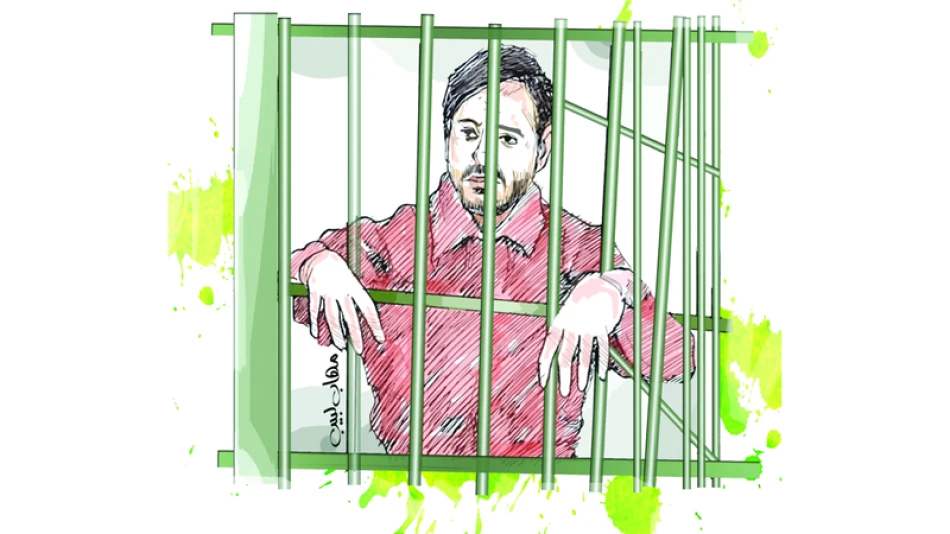
Drug Dealer Sentenced to Life Imprisonment After Three Death Penalty Verdicts
UAE Death Sentence Overturned Due to Judicial Error in Major Drug Trafficking Case
A significant legal precedent has emerged from the UAE's Federal Supreme Court, where a death sentence for drug trafficking was overturned and reduced to life imprisonment—not due to the severity of the crime, but because of a procedural violation that undermines judicial integrity. The case highlights the UAE's commitment to legal precision even in capital punishment cases, setting important standards for court procedures across the Emirates.
The Sting Operation That Led to Arrest
The case began when UAE authorities identified an Asian national allegedly trafficking large quantities of Captagon—a stimulant drug that has become increasingly prevalent in Middle Eastern markets. Anti-narcotics officers orchestrated an elaborate undercover operation, with one officer posing as a buyer to contact the overseas drug dealer.
The operation involved a sophisticated money trail: the undercover officer was instructed to deposit 900,000 dirhams (approximately $245,000) at a currency exchange, falsely claiming the funds were for purchasing car parts. This detail reveals the complex financial networks drug traffickers use to legitimize their operations in the UAE's tightly regulated banking system.
The Arrest in Al Qusais
Following the overseas dealer's instructions, the suspect met the undercover officer in Al Qusais, a commercial area in Dubai known for its automotive trade—a fitting cover for the operation. When the suspect opened his vehicle's trunk to display the agreed-upon drug quantity, authorities moved in for the arrest.
During interrogation, the suspect confessed to distributing drugs for the overseas dealer in exchange for 5,000 dirhams per operation, admitting this was his third such transaction. This relatively modest payment—roughly $1,360—underscores how international drug networks exploit local operatives with minimal compensation while exposing them to capital punishment.
Three Death Sentences and a Critical Legal Error
The case proceeded through all three levels of the UAE's federal court system, with each court unanimously imposing the death penalty. This progression appeared routine until the Prosecutor General identified a fundamental procedural violation that would reshape the case's outcome.
The Judicial Panel Inconsistency
The Federal Supreme Court's error was both technical and significant: the judicial panel that heard arguments and deliberated the case was not the same panel that delivered the verdict. Court records also referenced yet another panel, creating confusion about which judges actually decided the case.
This procedural breach violates core judicial principles requiring consistency in panel composition throughout a case's consideration. The Prosecutor General argued this constituted a "nullity related to public order"—a fundamental violation that courts should address independently, even without formal appeals.
A Precedent for Legal Precision
The Federal Supreme Court's decision to overturn its own death sentence demonstrates the UAE's evolving legal sophistication. Under civil procedure law, courts can reverse their own decisions when they violate established judicial principles, and the court agreed the Prosecutor General's request was valid.
This self-correction mechanism reflects international best practices in capital punishment cases, where procedural errors can invalidate even the most serious convictions. Countries like Singapore and the United States have similar safeguards, though they're rarely invoked in death penalty cases.
The Retrial and Life Sentence
During retrial, the defendant denied the charges and challenged the prosecution's authorization, claiming investigations were inadequate. However, the court found the evidence—including surveillance footage and the defendant's original confession—sufficiently compelling to uphold the conviction.
Crucially, the new judicial panel could not reach unanimous agreement on the death penalty, resulting in the life sentence. The defendant will serve life imprisonment followed by deportation, with all seized drugs and equipment forfeited to the state.
Implications for UAE's Justice System
This case signals several important developments in UAE jurisprudence. First, it demonstrates institutional willingness to prioritize procedural integrity over expedient case resolution, even in capital cases. Second, it establishes precedent for prosecutor-initiated reviews of final judgments, potentially affecting future death penalty cases.
The outcome also reflects growing international pressure on Gulf states to ensure death penalty cases meet the highest procedural standards. While the UAE continues executing drug traffickers, this case shows courts will scrutinize every aspect of capital proceedings.
For legal practitioners in the Emirates, the decision emphasizes that judicial panel consistency isn't merely administrative—it's a constitutional requirement that can determine life or death outcomes. This precedent will likely influence how courts manage panel assignments in future capital cases, potentially reducing successful appeals based on procedural grounds.
Most Viewed News

 Sara Khaled
Sara Khaled






